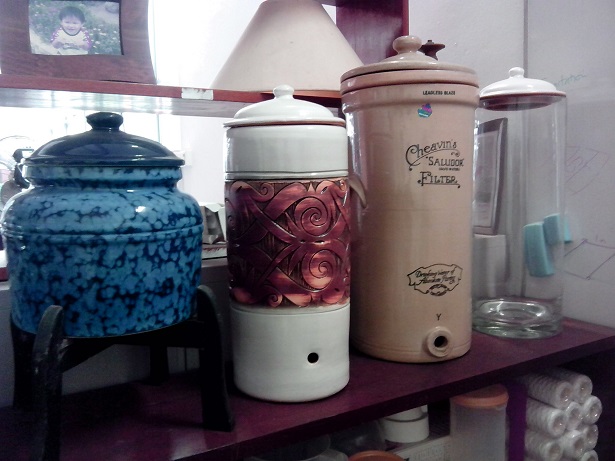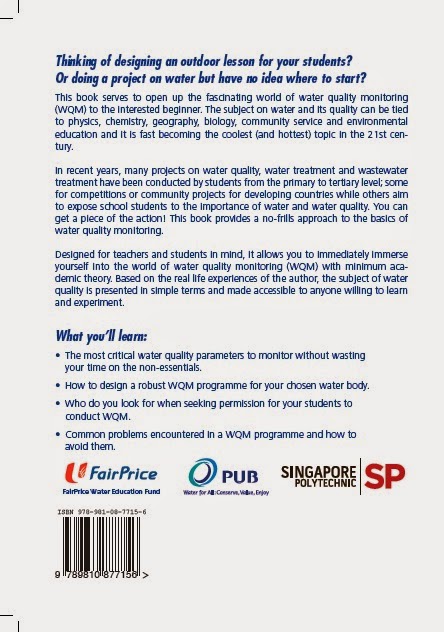Bottled water is probably worse than drinking water in terms of the bewildering plethora of regulations and certifications. To streamline this discussion a bit (and also to keep this post readably short), I will just touch on some of the major ones.
International Bottled Water Association (IBWA) (based in USA)
Bottled water companies can pay to become its members. It has a documented code of practice here. However, members have the discretion to follow (or not to follow) the code.
The document includes guidelines for operating a bottling plant, water quality parameters to test for in both source and finished water.
It also has definitions for the different types of bottled water. Other regulatory organisations have roughly similar definitions. If you thought bottled water is simply water, check out the following xxx water.
- "Artesian Water" or “Artesian Well Water” means bottled water from a well tapping aconfined aquifer in which the water level stands at some height above the top of the aquifer.
- "Demineralized Water" means bottled water which is produced by distillation, deionization,reverse osmosis, or other suitable process and that meets the definition of purified water.
- "Deionized Water" means water that has been produced by a process of deionization and that meets the definition of "purified water"
- "Distilled Water" means water which has been produced by a process of distillation andmeets the definition of "purified water"
- "Mineral Water" means water containing not less than 250 parts per million (ppm) total dissolved solids (TDS), coming from a source tapped at one or more boreholes or springs,originating from a geologically and physically protected underground water source.
- "Natural Water" means bottled spring water, mineral water, artesian water, artesian wellwater, or well water which is derived from an underground formation or water from surfacewater that only requires minimal processing
- "Spring Water" means water derived from an underground formation from which water flows naturally to the surface of the earth.
- "FDA monitors and inspects bottled water products and processing plants under its general food safety program, not a specific bottled water program.
- As with other types of food, FDA periodically collects and analyzes samples of bottled water.
- FDA laboratories may test the water for microbiological, radiological or chemical contamination. Individual samples are not tested for all possible contaminants cited in the quality standard, but for selected contaminants, depending on the reason for the sampling.
- Bottled water is considered to have an indefinite safety shelf life if it is produced in accordance with CGMP and quality standard regulations and is stored in an unopened, properly sealed container. Therefore, FDA does not require an expiration date for bottled water. However, long-term storage of bottled water may result in aesthetic defects, such as off-odor and taste. Bottlers may voluntarily put expiration dates on their labels.
- The materials used to produce plastic containers for bottled water are regulated by the FDA as food contact substances. Food contact substances must be approved under FDA's food additive regulations."
All bottled waters are strictly regulated under EU law.
Of particular interest is Directive 98/83/EC on the quality of water intended for human consumption. Like other regulatory documents, it lists down quality standards (these as usual include chemical, microbiological and radiological parameters), sampling and monitoring.
National Sanitation Foundation (NSF) (based in USA)
As seen above, FDA and EFBW are legislative and regulatory in nature while IBWA is more about self-regulation/compliance. Guess what, NSF is really about certification!
Its certification process seems quite comprehensive
- HACCP (hazard analysis and critical control point) and ingredient review
- Facility audit
- Product testing
- The client get to choose which regulations to test against e.g. FDA, EU, WHO
- Source water testing
- Label review
- Recertification
- Done yearly via an unannounced audit and product testing
In case you are thinking to rushing to click the above database link to see whether your favourite bottled water is listed there and if you are staying in Singapore (SG), I think you may be disappointed. Hardly any of our local bottled water suppliers are shown. In fact, the only NSF certified bottled water I found (though there may be others I am not aware of) is Icelandic Glacial Natural Spring Water retailed by Watsons. (No, of course I am not promoting or endorsing the drink. I am simply using it as an example.)
Personally, I believe NSF certification is a great step forward for a bottled water. IT definitely endows more confidence to the consumer on the safety of the product.
Finally, what about SG itself?
When I did a quick scan of the bottled water around me, it seems most of them come from Malaysia and Indonesia unless you have the cash to spare and buy brands imported from Europe. Quite a few large companies have bottled water labelled with their companies' logos and names and those are typically from our 2 neighbouring countries.
Before you suspect the safety and quality of these uncertified products, understand that all bottled water in SG are regulated under AVA.
Referring to AVA's document, many documents have to be submitted to AVA e.g. site plan of the water source, factory licence, authentication certificate for import of bottled water. Every consignment has to be accompanied by a health certificate that includes the concentrations of various water quality parameters (microbiological and chemical, no radiological though).
In addition, "meeting the import requirements does not exempt the
imported consignments from inspection and sampling for laboratory tests by
AVA"
My take
Unlike water filters, bottled water (even more for tap water) is pretty regulated in terms of legislation. Still, compare AVA's bottled water requirements of about 30 water quality parameters to WHO's ~200 parameters for drinking water or PUB's similarly numerous parameters for tap water and you get the idea that bottled water is lagging behind in its stringency... unless a bottled water supplier is willing to get NSF certification based on WHO drinking water standards.
So buyers take note, bottled water is not necessarily safer than tap water.






1 comment:
Dear Chen Ko,
My name is Pankhuri and I work as Beverage Quality Manager with NSF International. I read your blog and observed that you mentioned about NSF in your blog. We are looking for someone like you who can write such blogs for NSF. Can we please connect so that we can share our thoughts on this.
Kindly let me know on my email address: pdwivedi@nsf.org
Thanks
Post a Comment